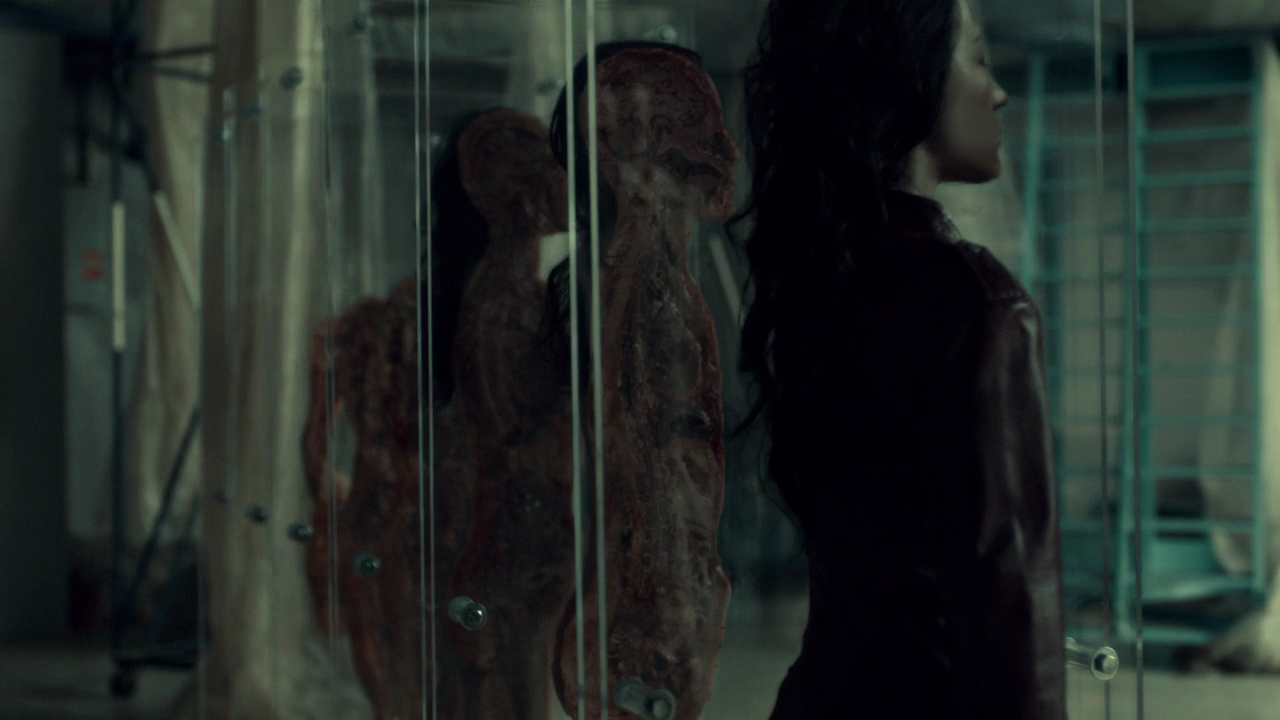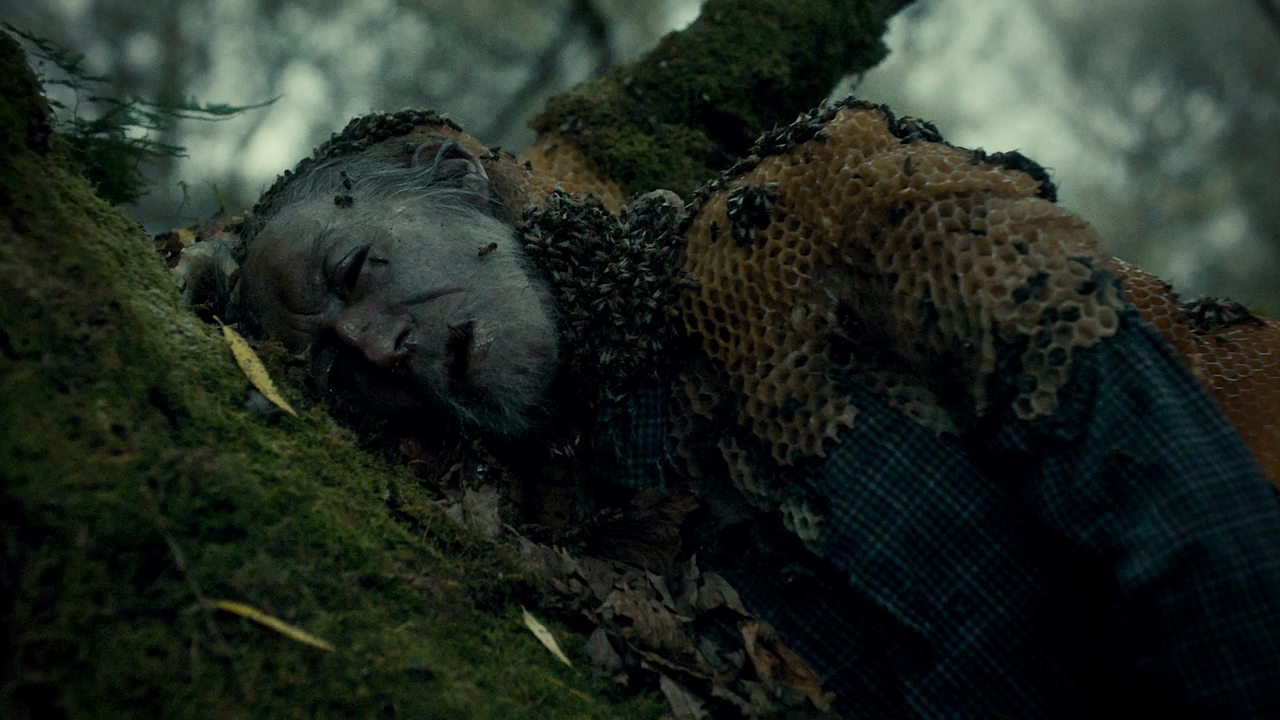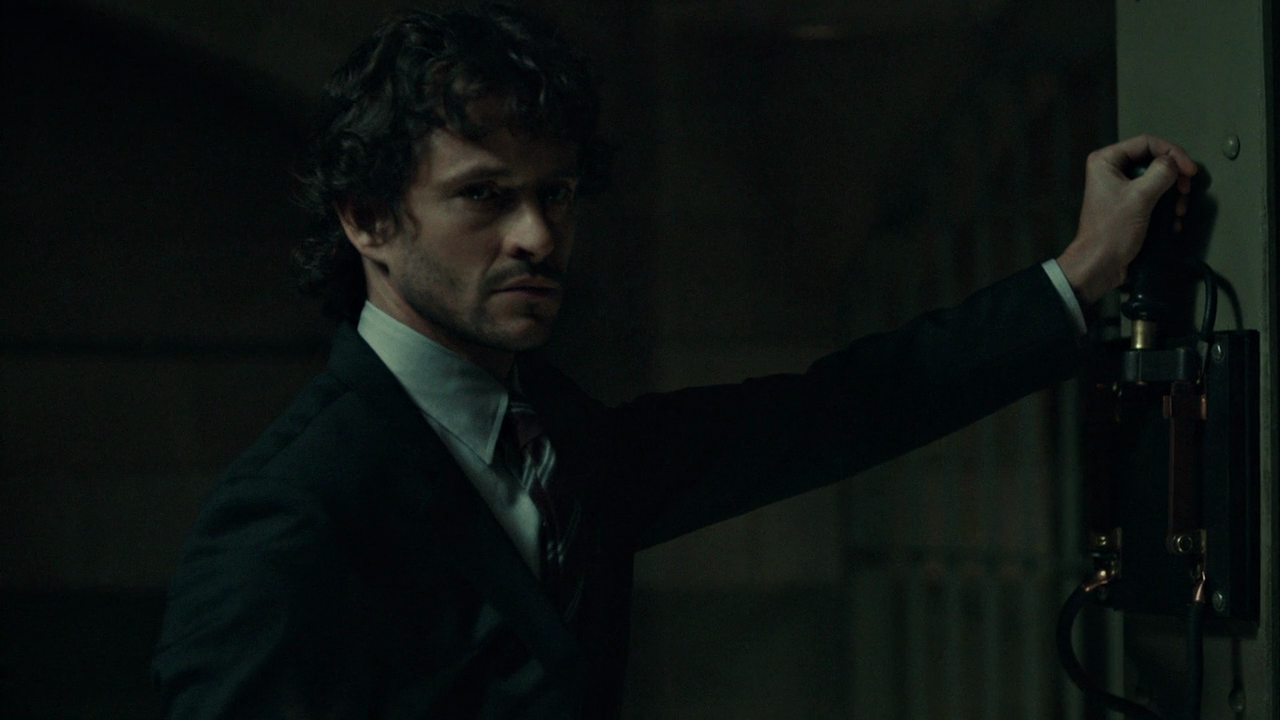The Proverbs of Hell 19/39: Futamono
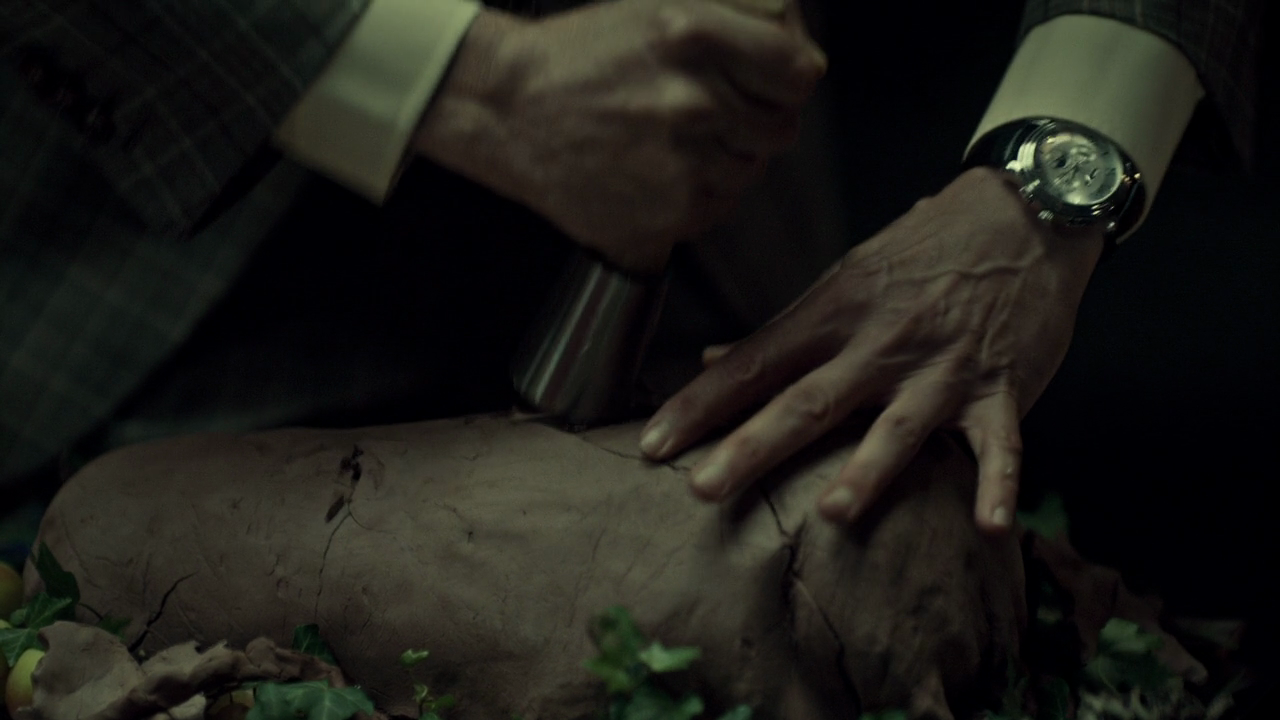 FUTAMONO: A soup dish served in a lidded pot. Most obviously a reference to the final scene, in which Jack discovers Miriam in a covered hole.
FUTAMONO: A soup dish served in a lidded pot. Most obviously a reference to the final scene, in which Jack discovers Miriam in a covered hole.
WILL GRAHAM: You’re moving smoothly and slowly, Jack, carrying your concentration like a brimming cup.
Another case of using one of Thomas Harris’s characteristically vivid similes in an unexpected context – originally it is Francis Dolarhyde who thusly carries his concentration as he sets up to peruse home movies and decide on his next victim.
JACK CRAWFORD: And then you told him to kill Hannibal Lecter.
WILL GRAHAM: Nothing I said made that happen, Jack. It just happened.
JACK CRAWFORD: Don’t seem too broken up about it.
WILL GRAHAM: There is a common emotion we all recognize and have not yet named. The happy anticipation of being able to feel contempt.
Two Thomas Harris lines in rapid succession. This one comes from Hannibal, where the emotion play across the face of Margot Verger as she’s preparing to introduce Clarice to her brother. Its poetry comes from the fact that we do not, in fact, quite recognize the emotion, as the act of recognizing an emotion is in a large part coextensive with the act of naming it. The emotion does, however, cohere – once it is named, even in the nine-word formulation offered by Harris, it immediately becomes possible to recognize it, which in turn perpetuates the experience of it.
WILL GRAHAM: I have contempt for the Ripper. I have contempt for what he does.
JACK CRAWFORD: What does he do, Will?
WILL GRAHAM: What does he do? What is the first and principal thing he does? What need does he serve by killing?
And the hat trick; Will’s question is the same one Hannibal asks of Clarice regarding Buffalo Bill in Silence of the Lambs. I can’t see anything else in the scene that looks distinctively Harrisesque, so doubt Fuller got a Hannibal Rising line in as well, but then again, that’d be the book that doesn’t stand out.
WILL GRAHAM: The Ripper kills in sounders of three or four, in quick order. Do you know why? I know why.
JACK CRAWFORD: Tell me.
WILL GRAHAM: Because if he waits too long, then the meat spoils.
JACK CRAWFORD: He’s eating them? Hannibal Lecter is Garret Jacob Hobbs? A cannibal?
WILL GRAHAM: Not like Garret Jacob Hobbs. Hobbs ate his victims to honor them. The Ripper eats his victims because they’re no better to him than pigs.
I was tempted to make this entire post consist of an annotation regarding the pigs comparison, but it would amount to a rewrite of my previous essays “Capitalist Pig” and “Capitalist Pig 2: This Time It’s About Cancer.”
…HANNIBAL: A remarkably-lean organ, the heart. Funny how we revere and romanticize a simple pump. Merely a muscle. Yet such a potent symbol of life and the things that make us human, good and bad. Love and ache.
ALANA BLOOM: All of them skewered.
HANNIBAL: It’s a thematic dish.
radical, gamebreaking politics for a group that’s struggling with the basic right to fucking exist
Being aro/ace is queer. End of story! To say that anyone who’s not cishet normative doesn’t belong at the queer “table” (as if being queer were some kind of banquet, Hannibal?) doesn’t really understand what it is to be queer at all. So let’s pick up the harp and let’s dance.
“radical”: late 14c., in a medieval philosophical sense, from Late Latin radicalis “of or having roots,” from Latin radix (genitive radicis) “root” (see radish ). Meaning “going to the origin, essential” is from 1650s.
Here’s what being queer, in any sense, often entails:
- corrective rape
- pedagogical erasure
- unacceptance of one’s non-normative relationships
- othering in mainstream media
- medical stigmatization, discrimination, even “conversion”
- unsafe to “come out” to partners, families, community and colleagues and so forth, and yet “coming out” is essential to being authentic
In other words, nothing nice.
These are all things that ace people have experienced. These are all things that gays and lesbians have experienced. These are all things that bisexuals have experienced. These are all things that trans people have experienced. These are all things that intersexed people have experienced. Why? Because we’re all queer. Because we all deviate from the expectations of straight people.
————————————————————
I’m a big fan of etymology. It’s a way of getting to the root of a word, of seeing where it came from. Because of course words change over the eons. “Nice” for example derives from Latin nescius “ignorant, unaware,” literally “not-knowing,” from ne– “not” + stem of scire “to know” (see science). And then it changed to “timid,” then “fastidious,” then “precise” and “careful” and “delicate” before becoming “agreeable” and “kind” and “thoughtful.” Over time, it’s been turned inside-out, polarity reversed and all that. What a queer word!
“Queer” is the perfect word to describe the history of “nice.” “Queer” derives from the c.1500, “strange, peculiar, eccentric” from Scottish, perhaps from Low German (Brunswick dialect) queer “oblique, off-center,” related to German quer “oblique, perverse, odd,” from Old High German twerh “oblique,” from PIE root *terkw– “to turn, twist, wind.” Huh, looks like we got something in common with twerking, too.
Oblique, off-center, turned… in other words, not straight. This is the geometry of being queer, or perhaps the square root of it to be particularly nerdish, and with particular thanks to Harper’s Etymological dictionary.
So what does building solidarity look like? Damn, it looks like looking in the mirror, I think! Conversely, what does excluding aro/ace from queerdom look like? It looks like, I dunno, like saying that because someone under the queer umbrella has an easier time of passing for straight we might as well just pretend that they’re straight? It’s like demanding someone stay in the closet.
That’s what we all have in common. The damn closet, from late 14c. French closet “small enclosure, private room,” diminutive of clos “enclosure,” from Latin clausum “closed space, enclosure, confinement,” from neuter past participle of claudere “to shut”. In Matt. vi:6 it renders Latin cubiculum “bedchamber, bedroom,” Greek tamieion “chamber, inner chamber, secret room;” thus originally in English “a private room for study or prayer.”…
Egomania
The Proverbs of Hell 18/39: Mukōzuke
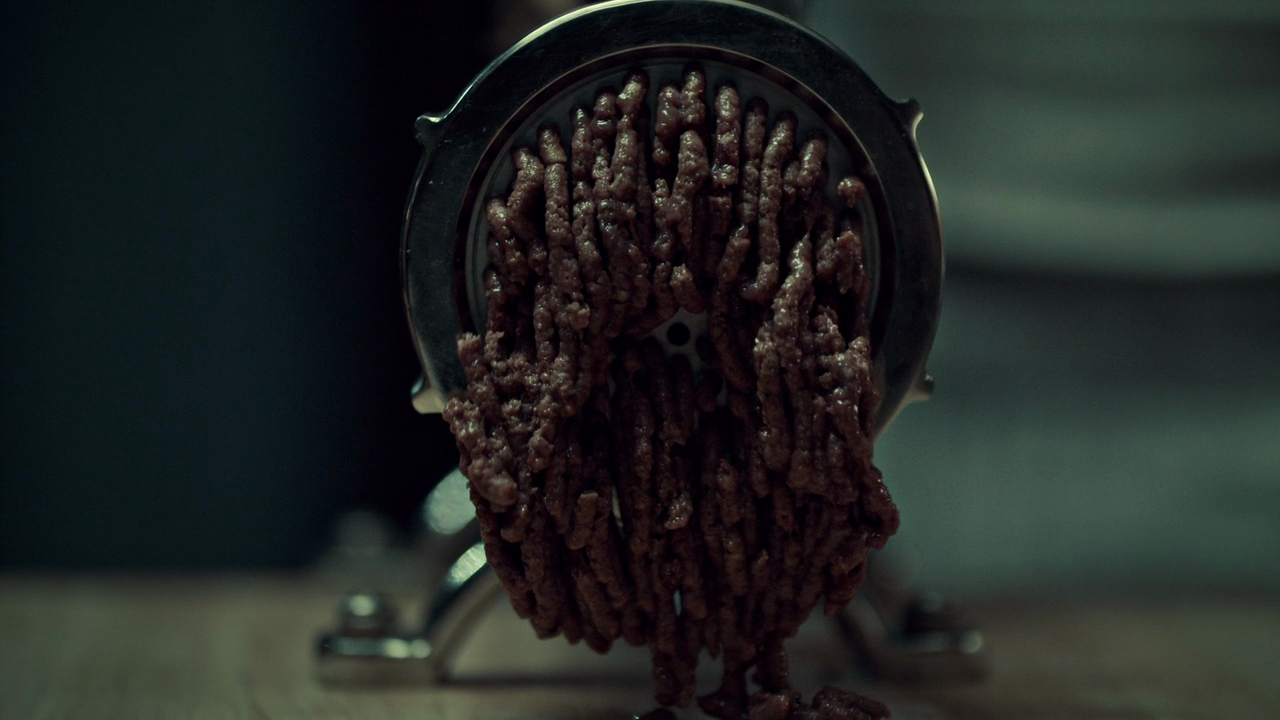 Sorry about the slow posting schedule of late – Jack’s on a brief holiday while he finishes up the Austrian School essay for Neoreaction a Basilisk, and I’m really bad at remembering to queue these on Game of Peaks night. Normal service should resume soon, and your patience is appreciated.
Sorry about the slow posting schedule of late – Jack’s on a brief holiday while he finishes up the Austrian School essay for Neoreaction a Basilisk, and I’m really bad at remembering to queue these on Game of Peaks night. Normal service should resume soon, and your patience is appreciated.
MUKŌZUKE: Literally “set to the far side,” which refers to the dish’s placement on the tray, a small dish of seasonal sashimi. The key detail for our purposes is that the dish is sliced.
FREDDIE LOUNDS: Send someone else, Jack. She’s one of yours.
Freddie is entirely sincere here, offering a genuine concern for Jack. This is not part of some larger heel turn on her part, a fact emphasized by her photographing Beverly’s body and, subsequently, Will in his face mask. Rather, it is out of a sense of genuine horror and, more broadly, a sense of clear morality – the same one that fuels her consistent loyalty to Abigail Hobbs, even after death. The grounds on which Freddie will take actual moral stands are few, but the resulting stands are a key part of her character.
As the saying goes, there’s always doubt until you see a body. This, then, is one of the more emphatic settlings of the matter in television history. In one sense, Beverly is quite literally fridged, or rather freezered, this being a necessary part of displaying her body like this. In most other regards, however, she avoids this trope, although it was actively discussed at the time, with Hettienne Park herself defending the show against accusations of both racism and sexism, pointing out (not unreasonably) that it’s more significant that an Asian woman got cast as a character with the last name “Katz” than that the character was killed off as had been planned since day one. The more substantive observation would be that the key point of fridging is that the character is killed to provide emotional drama for male leads. While Will, Jack, and the other (admittedly mostly male) characters do respond to her death with grief, this is not even the main point of “Mukōzuke.” Beverly’s death matters primarily for the ways in which it changes the state of play for the show, forcing Will to change his tactics and incrementally ratcheting up the inevitability of Jack eventually figuring out what’s actually going on with Hannibal.
At last, the image from the season two poster appears in the show. The appeal, of course, is much like the final lines of the first season – the inversion of one of the defining images of Hannibal Lecter.
BEVERLY KATZ: You said you just interpret the evidence. So interpret the evidence.
This is not the first time that Will’s investigative approach has been described as interpretation, but given the setup of Will being wheeled to a staged, framed tableau and the degree to which this particular work on Hannibal’s part is straightforwardly communicative the word stands out more in this context than many,
…WILL GRAHAM: I strangle Beverly Katz, looking in her eyes.
Digital Landfill
The Proverbs of Hell 17/39: Takiawase
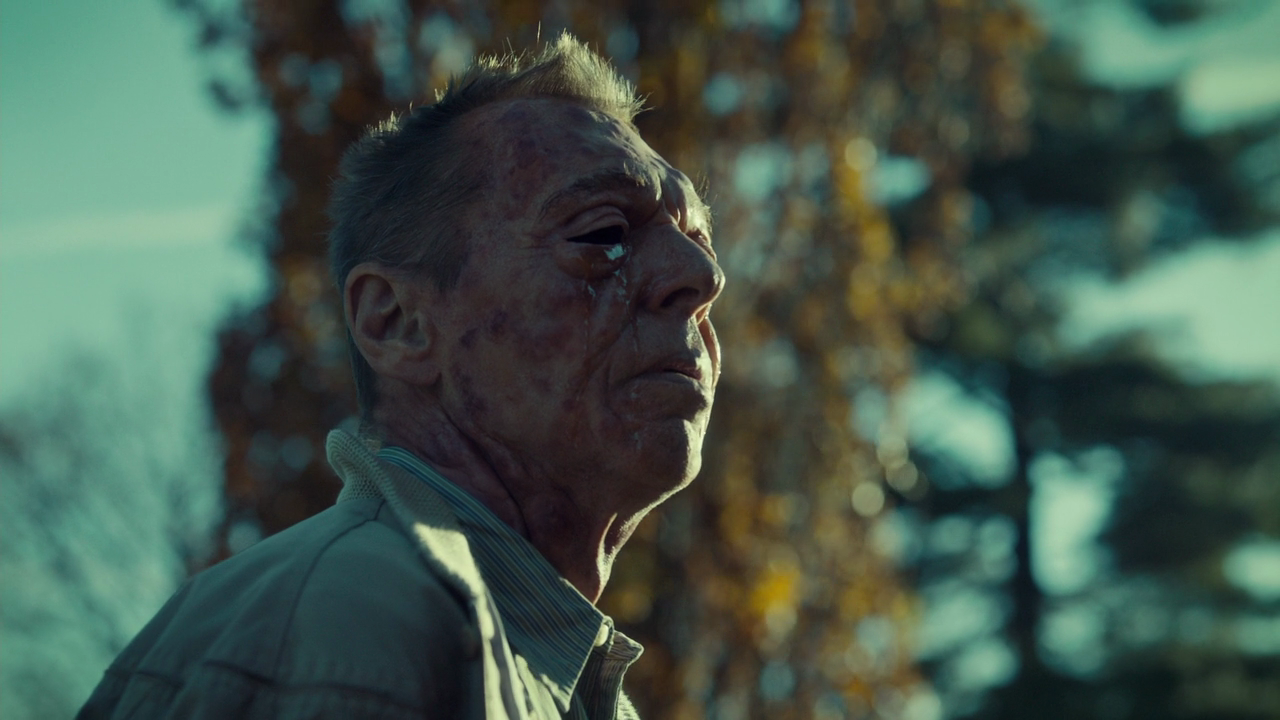 \TAKIAWASE: A mixture of vegetables and a protein in which the ingredients are cooked separately; on the whole a fair description of an episode in which the characters are unusually segregated.
\TAKIAWASE: A mixture of vegetables and a protein in which the ingredients are cooked separately; on the whole a fair description of an episode in which the characters are unusually segregated.
WILL GRAHAM: Your father taught you how to hunt. I’m going to teach you how to fish.
ABIGAIL HOBBS: Same thing, isn’t it? One you lure, the other you stalk?
WILL GRAHAM: One you catch, the other you shoot.
Will makes a second attempt at the hunting/fishing conversation that went so unsatisfyingly in “Relevés.” This time, instead of becoming obsessed with accusing Abigail, he comes up with a suitably witty retort to her comparison. Although the difference between catching and shooting is likely academic to the fish.
WILL GRAHAM: Last thing before casting a line: name the bait on your hook after somebody you cherished.
ABIGAIL HOBBS: So you can say good-bye?
WILL GRAHAM: If the person you name it after cherished you, as the superstition goes, you’ll catch the fish.
ABIGAIL HOBBS: What did you name it?
WILL GRAHAM: Abigail.
It’s an interesting and quietly revealing character beat that Will stakes his successful catching of Hannibal on the question of whether Abigail cherished him. Not least because it’s very difficult to construct a credible argument for an answer other than “not nearly as much as she did Hannibal.”
BEVERLY KATZ: Hannibal Lecter has no reason–
WILL GRAHAM: That’s exactly right. He has no discernible reason other than his own amusement and curiosity.
BEVERLY KATZ: That’s hard to prove.
WILL GRAHAM: Whimsy. That’s how you’ll catch him. There will be a very clever detail to find on James Gray. He wouldn’t be able to resist. Something that’s probably been overlooked. Something hidden.
BEVERLY KATZ: I’ll look for clever details. But I’m not looking for Hannibal.
One of the purest instances of aesthetics being used as investigation techniques. It’s not even the relatively cliche aesthetic principle of Hannibal’s need to prove his superiority. Instead it comes out of his basic love of dramatic irony – the same thing that leads him to stitch the muralist into the center of his own design or to kill the judge in a way that comments on the flaws of his jurisprudence.
A straight-up killer of the week, but one that serves in most regards to highlight the rapidity with which returns are diminishing on that front. Its main appeal is this visual of a body that is partially other, and specifically partially an object of nature. But this is visibly just the mushroom people from “Amuse-Bouche” done with bees instead. Meanwhile, the case in general is completely segregated from the other plots – neither Will nor Hannibal do any work on it, and its only direct contribution to the plot at large is that an offhand comment that inspires Beverly, who literally pops her head into this plot just to hear that comment. For the most part, this just seems to be here to check a box. The box is certainly checked, but it’s tough to say more than that.…
Ikigami: Reflections on Shin Gojira in 2017
The Proverbs of Hell 16/39: Hassun
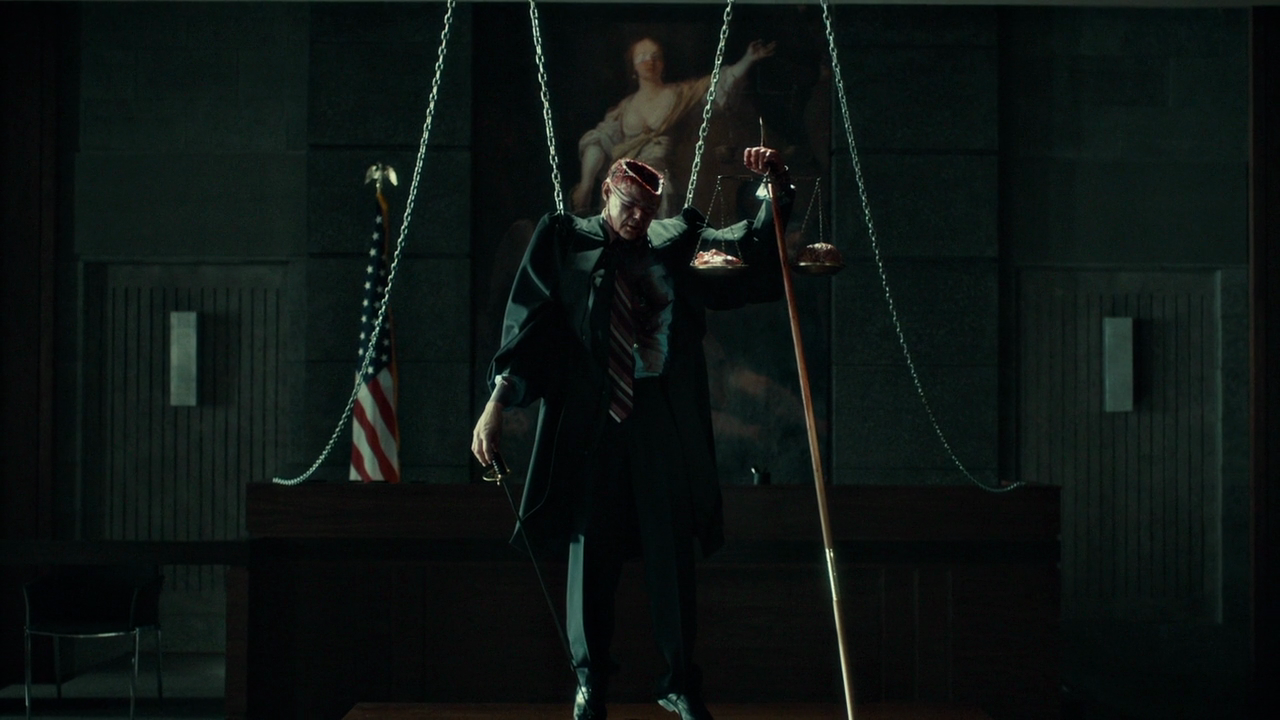 HASSUN: A sushi course with small side dishes that sets a seasonal theme. Janice Poon discusses it in terms of balancing opposites, which could be made related to the weighing of guilt and innocence involved in a trial with relatively little critical legerdemain.
HASSUN: A sushi course with small side dishes that sets a seasonal theme. Janice Poon discusses it in terms of balancing opposites, which could be made related to the weighing of guilt and innocence involved in a trial with relatively little critical legerdemain.
A bewildering and suggestive opening image as Will is shown imagining his own execution from the perspective of the executioner. This is an entirely plausible thing for Will to do – indeed the idea that Will would actively try to empathize with his potential executioner is really interesting. But its substance is in practice merely “unsettling cold open,” the impact of the image left entirely for the viewer instead of the narrative. In one sense this is emblematic of the episode, which is very much the season’s “Œuf.” It’s actively identified by Fuller as the weak link, and sees the show attempting its spin on courtroom drama instead of police procedural, only to find that the move to the second half of Law and Order is a step further than the forced perspective brilliance of its iconography can sustain.
This smirk off the line where the prosecutor asserts that Will is the smartest person in the courtroom is interesting; its most superficial reading is standard issue “Hannibal gloating about how clever he is,” and yet given the depth of his investment in Will’s development it’s equally likely that this is a smile of genuine satisfaction that his friend is finally getting the critical reception he deserves.
JACK CRAWFORD: My instincts have not yet arrived at conviction.
KADE PRURNELL: Mine have. With the benefit of no prior involvement and no personal connections to the accused.
JACK CRAWFORD: Meaning, I can’t be impartial.
KADE PRURNELL: Of course you can be impartial. But right now, you’re not. You have to believe something. As long as there is reason and evidence to believe. You have reason. You have evidence.
It’s interesting that Prurnell’s case here frames belief as a moral obligation as opposed to a logical consequence. She is, after all, presumably not saying that all things there is both evidence for and some reason to believe are true. Rather, she is suggesting that an FBI agent has a duty to believe in these circumstances that Jack is being lax in. For all his faults, even Jack ain’t buying that bullshit.
JACK CRAWFORD: He can think like anybody. He has pure empathy and projection. He can imprint profiles on the blank slate of his mind for us to read.
MARION VEGA: Sounds like a supervillain.
Transparently untrue; a supervillain with such a thoroughly non-offensive power would be an extremely bizarre idea. A power like this is far more suited to a superhero, or, better yet, the troubled protagonist of some overly pompous post-House cop drama. Which is to say that perhaps genre-based narratology is not a great alley for Hannibal to wander down.
…HANNIBAL: Tell me, Jack. Was your testimony meant to be a resignation?
JACK CRAWFORD: Something very appealing about walking away from all the noise.
The One Thing I Can’t Seem to Shut Up About: A Commentary on Sol
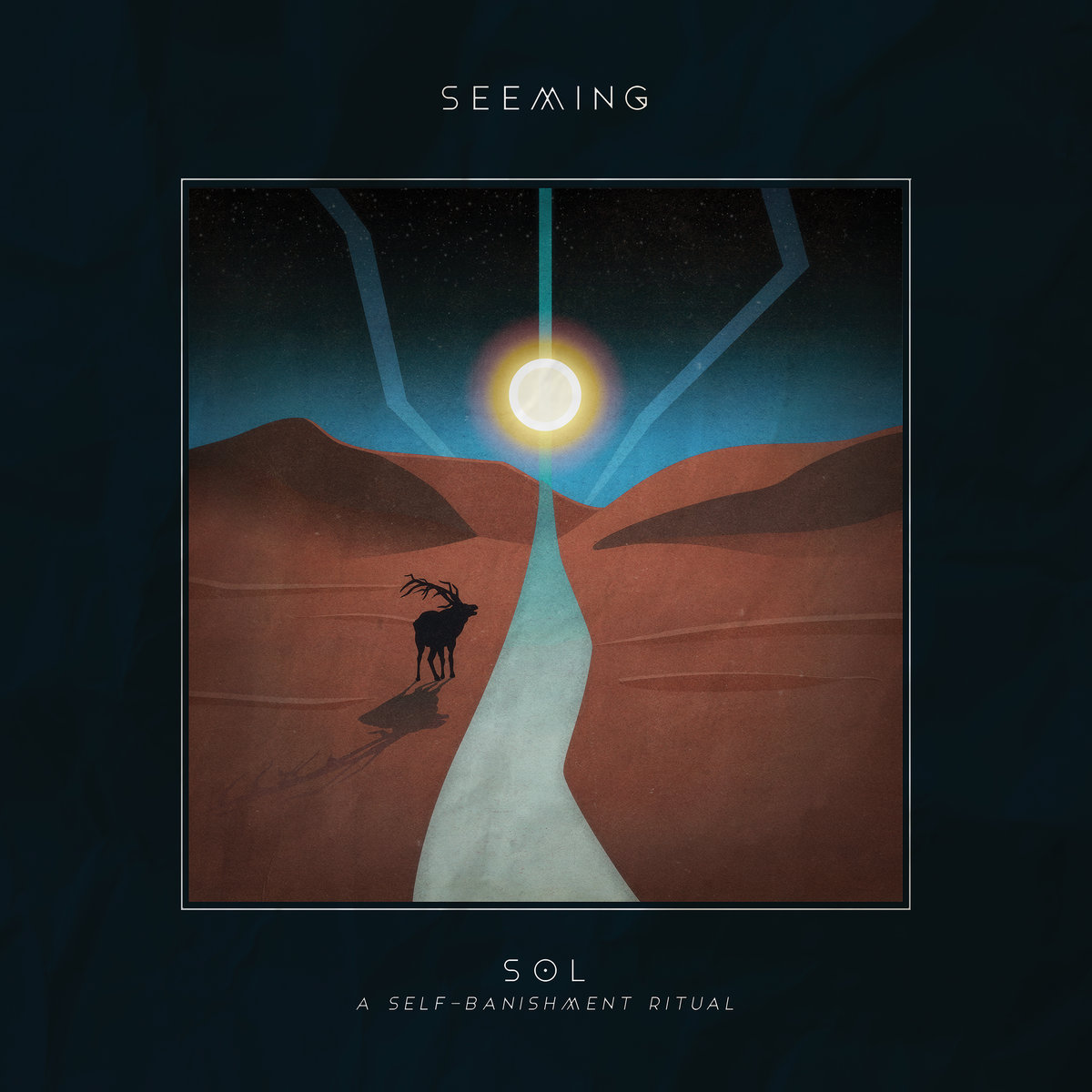 I cannot possibly review Seeming’s new album Sol. It’s fucking amazing. It’s astonishing to me that Madness and Extinction is an album it’s possible to double down on and outdo. But Alex did it, with a second album that’s frightening, ambitious, and unlike anything else that’s been done, ever, by anyone. I care about it like I care about Kill the Moon and Promethea. Go buy it. Honestly, buy it, listen to it a few times. You can stream and buy it here. All Bandcamp’s profits today are going to the Transgender Law Center, so it’s a great day to splash out some cash for it. Then come back here.
I cannot possibly review Seeming’s new album Sol. It’s fucking amazing. It’s astonishing to me that Madness and Extinction is an album it’s possible to double down on and outdo. But Alex did it, with a second album that’s frightening, ambitious, and unlike anything else that’s been done, ever, by anyone. I care about it like I care about Kill the Moon and Promethea. Go buy it. Honestly, buy it, listen to it a few times. You can stream and buy it here. All Bandcamp’s profits today are going to the Transgender Law Center, so it’s a great day to splash out some cash for it. Then come back here.
I’m one of the people Alex regularly sends demos to, and so Sol has been the single biggest soundtrack of my last three years. Alex is one of my closest friends, but I’m also an unabashed and unreserved fan of his stuff, and I tended to play each new demo to death and beyond before just as eagerly devouring the next, listening in rapt wonder as song after song mutated from idea (sometimes even an obviously good one) through to demos that sketched its potential and finally to finished mixes, each one of which evolved and developed further in a frenzy of final tweaks and flourishes. Most notably, Sol was the secret soundtrack to Neoreaction a Basilisk, with multiple passages in the book being directly influenced by songs on it. Which we’ll talk about,
Beyond that, Sol as it exists for me is a tangle of songs well beyond the thirteen that actually made the album. I can’t even fully map the album’s creative influence on me without talking about songs like “Yes Artemis” and “Angel in the Jungle,” which you can at least check out on the Faceless EP, and others like “Party Anthem 2000” and “You Rang” that might show up somewhere some day, but might just as easily be things that wither away having been heard by a couple dozen people at most, ever.
So this isn’t a review. Instead it’s a commentary that is utterly rooted in my own idiosyncratic perspective. A “now the whole story can be told” documentation of the last few years of my life by way of one of the most titanic creative achievements I’ve ever seen, little yet had front row seats to. And, along the road, my own external sense of how the songs developed.
Doomsayer
I’ve mentioned more than once that I “accidentally” wrote Neoreaction a Basilisk. This is a funny line that did its marketing purpose, but beneath the joke there’s a kind of grim-faced reality. Accidentally writing a book is more accurately described as compulsion and obsession. Whatever I may have wanted to be doing with my evenings, what happened instead was that I opened my laptop and continued to extend the strange and twisting block of text that insisted, again and again, that I come back to it. I too know what it’s like when only one thing is real.…

